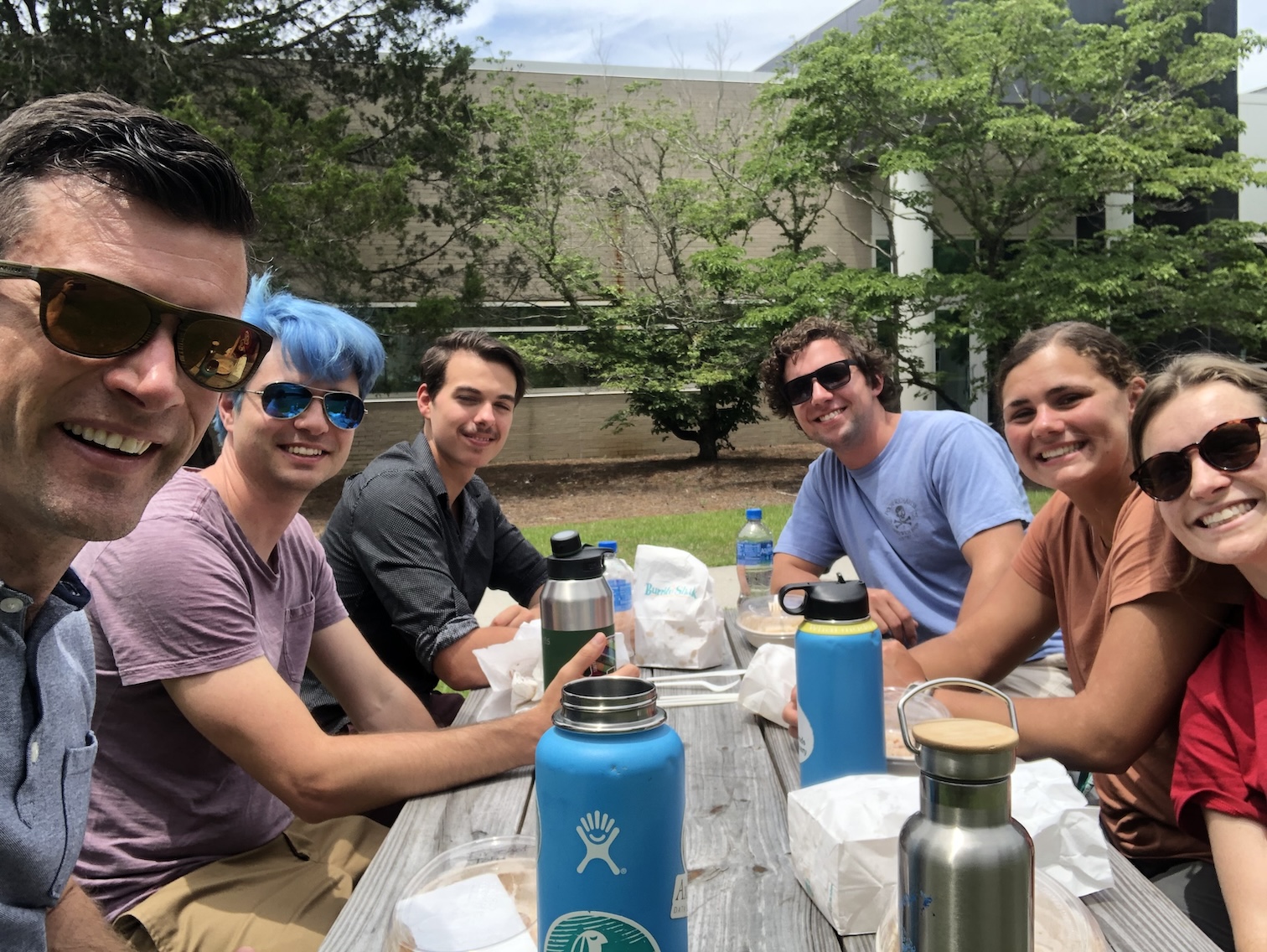
COAST Lab Resources
Here you can find some hopefully helpful information for COAST Lab members.
This is a work in progress and not intended to be comprehensive. What information do you think should be covered here? Please add an issue or fork this repo, add the needed content, and submit a pull request to have it added!
The goal of this repository is to provide all COAST Lab members (students, staff, faculty, prospective members, etc.) information that they might need to better understand some element of their roles. An abundance of information exists on UNCW webpages and handbooks, and we try not to provide information identical to that provided elsewhere to avoid confusion. Links to external references are too frequently changed to keep up to date here but we do link to a few key resources.
Joining the COAST Lab
Please see the main Lab Members page for more information regarding opportunities to work with the COAST Lab.
Mental Health
There is increasing evidence that certain attributes of academic research, including graduate-level studies, may challenge your mental health.
Specific factors driving this include:
- Low pay and quality-of-life issues, particularly as a function of living in an expensive city as San Diego
- Feelings of isolation in your research; e.g. everyone has their own topic and it can often feel as if you are working on your own
- Uncertainty in your research, although it should be noted that, in research of all kinds, it is not just the outcomes that are uncertain, but the questions themselves!
- Uncertainty in your post-grad school career
- So-called “negative results”; i.e., at some point in your research, it is likely that certain questions will be more challenging to answer than anticipated, or that you will feel you have spent days/months/years toiling with little to show
- Feelings of imposter syndrome or uncertainty in your abilities
- Burnout; i.e. feeling the need to work endless hours to make up for the above issues, and the subsequent exhaustion
- All scientists come across most of these issues at some level (Phil definitely includes himself!). I strongly encourage everyone in the group to take an active and pre-emptive approach towards the maintenance of their mental health. You should also be familiar resources on campus: https://uncw.edu/seahawk-life/health-wellness/counseling/.
Job Hunting
- UNCW has a Career Center. Check out their excellent resources for things like resume building, job seeking, refining career interests, etc.
- Schmidt Marine Technology Partners has an outstanding job aggregation site: https://jobs.schmidtmarine.org/jobs. No surprise there: Eric Schmidt is one of the cofounders of Google!
- Our home department, EOS, has an internship program for undergraduate and graduate students. We recommend checking out the EOS Internship Program website and signing up for the mailing list. This is a great way to learn about both internship and career opportunities.
Conference Attendance
Attending a scientific conference is a wonderful way to meet peers, learn about cutting-edge research, and potentially find job opportunities. UNCW offers travel grants to facilitate conference participation, EOS has some travel money, and the COAST Lab often has additional resources. Please reach out if you have questions about how to find these resources.
Outputs, publication expectations and standards, and open science
Where possible, all research outputs will be published Open Access (OA) (preferably Gold or Diamond OA; for definitions, please see the Open Research Glossary). Where Gold or Diamond OA is not possible, the manuscript should be made publicly available via Green OA within three months of acceptance.
Authorship on any manuscript or presentation will be openly discussed in group meetings and should, if possible, include everyone who has made a significant contribution to the work. A “significant contribution” can include but is not limited to: interpretations of primary data and development of ideas presented in the work; it need not include data curation or financial contribution to the work undertaken. The order of authors on a manuscript or presentation should be dictated by the relative contribution made by each author; in the case these contributions are equal, authors should be listed alphabetically by surname. Where conflict arises (not anticipated, but just in case), Phil will facilitate discussion to help resolve this. An open dialogue is encouraged about this matter, ideally via authorship “check-ins” that will likely occur several times over the lifetime of the study, starting early on. To help inform Editors, reviewers, and readers of our papers, we will include an author contribution statement as part of a paper.
Reference managers are extremely helpful for preparing publications and grant proposals. You are welcome to use whichever you like, however Phil prefers EndNote. Note that UNCW encourages the use of Zotero: https://libguides.uncw.edu/using_zotero_citation_manager.
Lab Products
Losing work related to COAST Lab research is inexcusable. We have several free storage options. All work must be backed up, ideally immediately. All lab work should be stored on the COAST Lab SharePoint site and/or GitHub. There are some instances where neither site is appropriate or functional; in these cases, back up your work every day in a UNCW OneDrive account.
Expectations
Work in progress…
- Please listen actively in all meetings.
- Take notes!
- (Reiterating 1 and 2:) Please don’t use electronics during group meetings unless presenting or taking electronic notes.
- Ask questions.
- Take initiative to find answers to your questions, but always ask questions and follow standard operating procedures and/or material safety data sheet (MSDS) guidelines, especially when using new procedures/materials. There is no question “too dumb” to ask.
Credit
This document borrows heavily and is modified from six open source Code of Conduct documents: http://gilbertlab.ucsd.edu/our-team/expectations-principles/ and its sources: (i) BahlaiLab CoC (Christine Bahlai); (ii) WhitakerLab (Kirstie Whitaker); (iii) Hill Lab (Jon Hill); (iv) Krevorlab (Sam Krevor); (v) MicroMicEng (Ben Britton); (vi) Basins Research Group – Christopher Jackson.